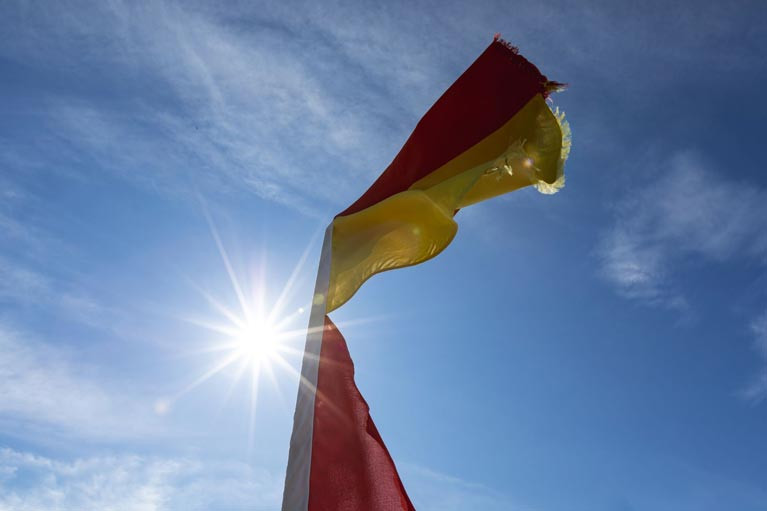Despite the challenges of the coronavirus outbreak, the Royal National Lifeboat Institution (RNLI) hopes to provide a lifeguard service on around 30% of the beaches the charity usually covers this summer, if government guidance allows.
The rollout of the normal seasonal lifeguard service was paused at the end of March due to the measures put in place by the Government to control the spread of Coronavirus. In the anticipation that there may be changes to the lockdown restrictions in the coming weeks and months allowing the public to visit beaches around the UK and Channel Islands, the RNLI has been looking at plans to resume a lifeguard service where possible.
This needs to be consistent with government guidance but the plan is for the service to build in time so that lifeguard patrols reach 70 beaches across the UK by peak season. Beaches will be chosen based on risk and popularity. The RNLI will also look to achieve a geographical spread while making sure the service provided is flexible and sustainable enough to respond to what may be an ever-changing environment.
RNLI Chief Executive, Mark Dowie, said: ‘The RNLI is incredibly proud of its highly skilled lifeguards who work alongside the charity’s volunteer lifeboat crews, HM Coastguard and other emergency services. RNLI lifeguards are professional lifesavers and will be essential when the lockdown is lifted and people head to our coastlines and enjoy our beautiful beaches.
‘The current situation means that the operational logistics and training behind setting up a lifeguard service – normally in full swing at the moment – have had to stop. Re-establishing this infrastructure and distributing equipment to beaches will take time. And we must also make sure that conditions are safe for our lifeguards to provide an effective service – our priority remains the safety of our people and the public.
‘But despite these challenges, and given enough notice of lockdown lifting, we’re hoping to put lifeguard patrols on around 70 beaches across the UK and Channel Islands.
‘We are planning for a service that we can adapt to changes in Government guidelines and restrictions. We don’t know whether people will be allowed to visit beaches, what social distancing restrictions will be in place, or whether we’ll have periods where restrictions are relaxed and then reintroduced. We’re also looking at how we provide our lifeguard service – we may have a more agile service that can adapt to changing circumstances – so it may look a little different to previous years. And we’re working with local councils, landowners and partners to make sure the environment lifeguards return to is safe and appropriate precautions are in place.
‘While the main challenge of rolling out a lifeguard service will be logistical, as a charity we do also need to consider the financial challenge we currently face and our fall in income due to restrictions on how we can fundraise.
‘The reduced lifeguard service will continue to be supported by our lifeboat stations around the coast. Our lifeboat volunteers have been on call 24/7 to help those in trouble at sea throughout the coronavirus outbreak – and will continue to be so this summer. We will also be giving water safety advice throughout the summer. During the coronavirus outbreak, we have seen great examples of people coming together, so our focus is to work with the public to succeed in ensuring the coast is a safe place to visit when restrictions are lifted.’
The RNLI is urging everyone to follow current Government instructions until these restrictions are lifted. The guidance is clear: stay home, protect the NHS and save lives. While you are allowed outside for daily exercise, we do not recommend that this exercise is on or in the sea. If you are able to visit the coast for your daily exercise while adhering to Government advice, we urge you to remember the following RNLI safety advice:
- Take care near cliffs - know your route and your limitations
- Check the weather forecast and tide times
- If you fall into the water unexpectedly, FLOAT TO LIVE. Fight your instinct to thrash around, lean back, extend your arms and legs, and float
- In any coastal emergency dial 999 or 112 and ask for the coastguard
































































